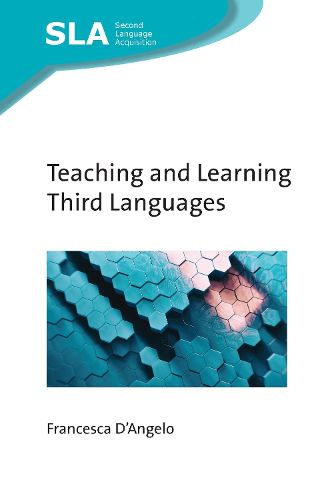Readings Newsletter
Become a Readings Member to make your shopping experience even easier.
Sign in or sign up for free!
You’re not far away from qualifying for FREE standard shipping within Australia
You’ve qualified for FREE standard shipping within Australia
The cart is loading…






This book contributes to emerging research on third language acquisition (TLA) and pinpoints the main factors characterising TLA as a different process and area of study from second language acquisition. Moving beyond the dichotomous conception of monolingualism and bilingualism, it proposes a holistic and interdisciplinary approach to studying acquisition of a third or additional language. It presents readers with a practical guide to understanding how these languages are processed, learned and taught and addresses the cognitive, linguistic and affective factors which make multilingual learning and teaching a complex and unique phenomenon. It also emphasises the important role of teachers as knowledge generators. Through various examples of multilingual education practices, it highlights how fundamental teachers are as bridges between education and research on multilingualism. This book will appeal to postgraduate students, teacher trainers and researchers in the fields of multilingual education and cognitive linguistics.
$9.00 standard shipping within Australia
FREE standard shipping within Australia for orders over $100.00
Express & International shipping calculated at checkout
Stock availability can be subject to change without notice. We recommend calling the shop or contacting our online team to check availability of low stock items. Please see our Shopping Online page for more details.
This book contributes to emerging research on third language acquisition (TLA) and pinpoints the main factors characterising TLA as a different process and area of study from second language acquisition. Moving beyond the dichotomous conception of monolingualism and bilingualism, it proposes a holistic and interdisciplinary approach to studying acquisition of a third or additional language. It presents readers with a practical guide to understanding how these languages are processed, learned and taught and addresses the cognitive, linguistic and affective factors which make multilingual learning and teaching a complex and unique phenomenon. It also emphasises the important role of teachers as knowledge generators. Through various examples of multilingual education practices, it highlights how fundamental teachers are as bridges between education and research on multilingualism. This book will appeal to postgraduate students, teacher trainers and researchers in the fields of multilingual education and cognitive linguistics.